In March, a group of major seafood companies from Indonesia, the United States and Singapore took a historic step toward moving Indonesia’s snapper and grouper fishery from over-exploited to sustainable. How? By agreeing not to buy smaller fish that, while prized by some markets, are too young to reproduce.
A seafood producer of increasing global prominence, Indonesia is home to the world’s second-largest fisheries and the third-largest aquaculture sector. And a key fishery for the nation is its snapper/grouper fishery: Here, an estimated 10,000 fishing vessels, from motorized canoes to large ships, catch about 80,000 metric tons of snapper/grouper annually, with an estimated retail value of nearly US $350 million.
However, stock assessments by the Research Institute for Marine Fisheries show that most species in this fishery are over-exploited — due in part to a growing preference in markets such as the United States for plate-sized, whole fillets that primarily come from smaller fish. While these fillets are aesthetically pleasing and popular in many restaurants, overfishing of smaller snapper/grouper in Indonesia is jeopardizing the health of this sprawling fishery, one that an estimated 100,000 people depend on for their livelihoods.
Driven to reverse this alarming trend, five seafood companies recently signed an agreement in partnership with The Nature Conservancy at the Seafood Expo North America in Boston (one of the world’s premiere seafood trade shows), whereby they commit to a minimum trading size for snapper and grouper from Indonesia.
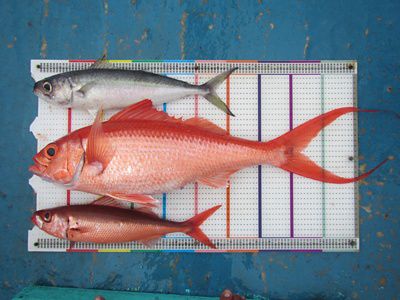
TNC is pleased to welcome the following new partners to this initiative:
CV. Bali Sustainable Seafood
Anova Food LLC
LP Foods Pte Ltd.
PT. Sukses Hasil Alam Nusaindo
PT. Bahari Biru Nusantara
Together, these industry commitments will enhance traceability and transparency in Indonesia’s fisheries, and will position this fishery for recognition of its sustainability, such as certification to Marine Stewardship Council (MSC) sustainability standards.
Through the Supporting Nature and People–Partnership for Enduring Resources (SNAPPER) Project, TNC has collaborated with United States Agency for International Development (USAID), the David and Lucile Packard Foundation, Walton Family Foundation, local fishers and other key partners to enhance the sustainability and profitability of snapper/grouper capture fisheries in Indonesia.
TNC and Partners Sign Historic Agreement
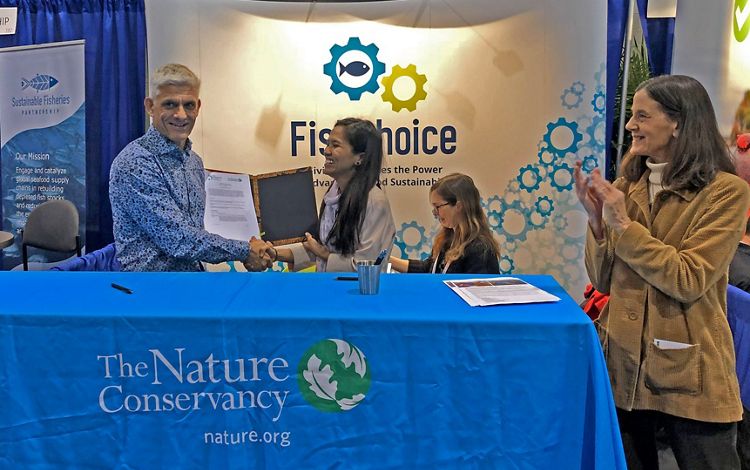
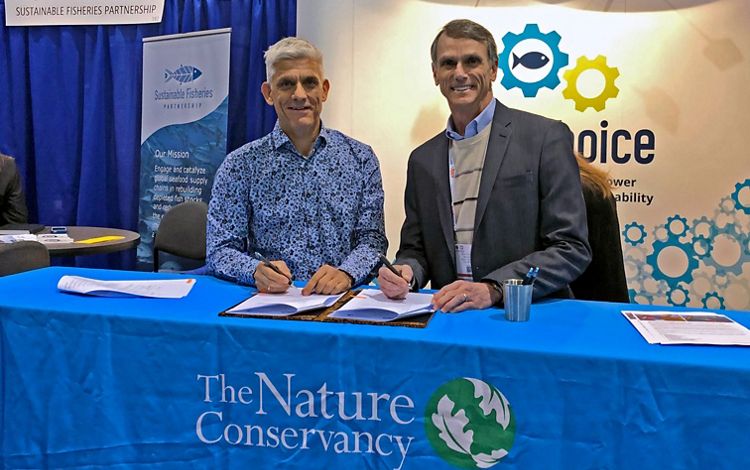
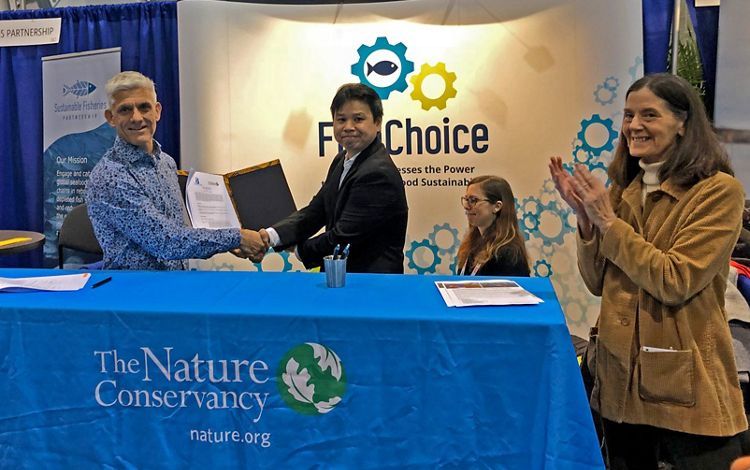
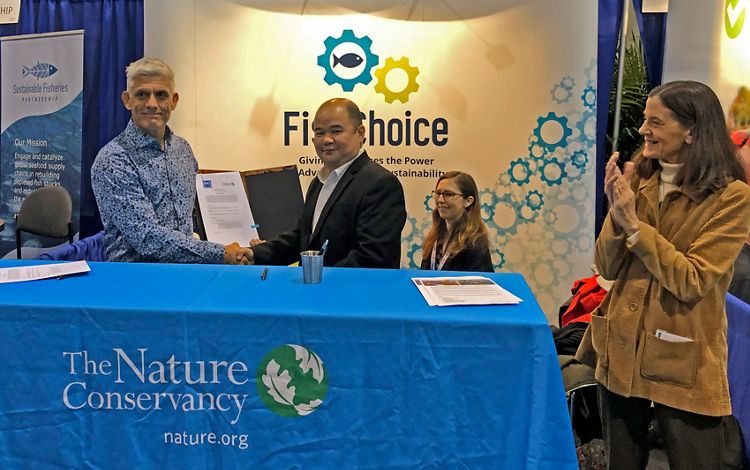
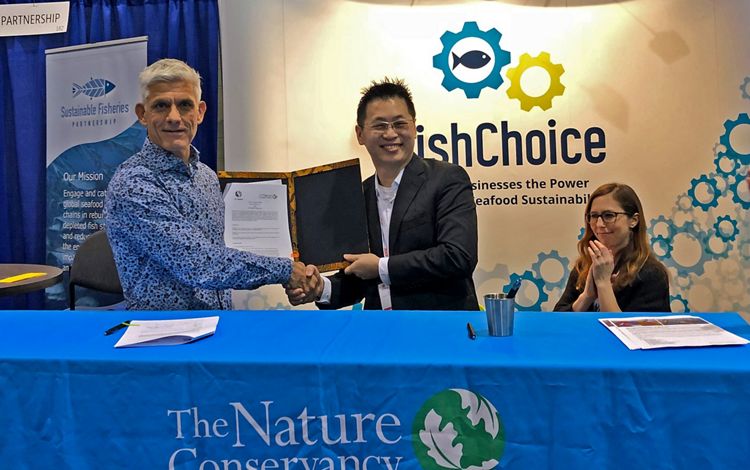
Hema Sitorus (Bali Sustainable Seafood)
Bali Sustainable Seafood (BSS) is an Indonesian fish trading company established in 2017 to provide high-quality seafood for a wide range of local businesses. We endeavor to create and support sustainable fisheries in Indonesia.
Snapper is an integral seafood item found on menus around the island of Bali. BSS fully supports the long term, competent scientific approach to the Fisheries Improvement Program (FIP) for snapper fisheries created by The Nature Conservancy. We are honored to join this FIP and demonstrate that by partnering with local NGOs, fishing communities and restaurants, we can work successfully together for the long-term benefit of Indonesian marine resources, and provide local, sustainably harvested seafood to the Bali restaurant and hotel market.
Blane Olson (Anova Technical Services, LLC):
For decades, the Indonesian snapper fishery has been a mainstay of the seafood industry for fishers and processors. Given the strong continuous market demand in the US, and the growing demand for snapper from China, it is imperative that today we work collaboratively to ensure that all snapper are harvested sustainably and of a size that ensures sustainable replenishment.
Consequently, plate-size snapper fillets, which come mainly from immature snapper, are no longer acceptable as a harvestable and marketable size. To make the switch, the whole supply chain, including supermarket retail and food service markets, must also be accountable and eliminate the demand for immature snappers, which puts fisheries at risk of being unsustainable.
Bas Zaunbrecher (Anova Food LLC):
Anova Food LLC, a major U.S. importer of frozen seafood from Indonesia, is delighted to join The Nature Conservancy’s Indonesian snapper and grouper FIP. Anova Food LLC is impressed by the work that TNC has done over the last four years on nationwide data collection in Indonesia in the deepwater demersal fisheries, and on the progress they are making together with the Indonesian government on a national harvest strategy for demersal fisheries, including harvest control rules. We expect that in the near future this can lead to some of the demersal species to be Marine Stewardship Council (MSC)-certified within this project. Anova Food LLC will commit to buying only mature-size snappers and groupers because we believe this is the right path for a healthy future of the Indonesian demersal fisheries.
Hadi Wijaja (PT Bahari Biru Nusantara):
Our company is located just five kilometers away from Brondong Fishing Port, one of the biggest fishing ports in Jawa Timur (East Java). With overfishing and other issues plaguing our marine environment, fisheries stocks are threatened everywhere, and as a bridge between the market and fishing community, we recognize this pattern of decline. While we are very much concerned with the aforementioned problems, we were at loss at how to do our part to reverse the trend. It will require the joint effort of multiple parties in the commercial chain to be able to stop or even reverse the trend. After meetings with The Nature Conservancy and our commercial partners, we hereby confirm our commitment to focus on processing sustainable sizes of groupers and snappers as per stated in TNC’s research documentation. We are hoping that more packers, buyers and fishing communities will join hand-in-hand to make this effort easier and faster.
PT. Sukses Hasil Alam Nusaindo:
PT. Sukses Hasil Alam Nusaindo is a seafood processing and export company working with snapper and grouper from a fish processing plant in Makassar, South Sulawesi. Mr. Effendi Soegiono is the owner and the managing director of this company, which exports to the US (accounting for about 60-70 percent of sales) followed by Australia and China. Mr. Effendi has been concerned about the sustainability of the snapper and grouper fisheries and is fully committed to avoiding trade in immature snappers and groupers. He hopes that other Indonesian companies will soon join him and make the necessary changes in their supply lines to ensure the survival of these fish stocks and the people and businesses that depend on them.
Sky Ong (LP Foods):
LP Foods is a well-established procurement company based in Singapore sourcing premium seafood for its large clients in the US, UK and Japan, where our name is synonymous with stability, quality products, honesty and ethical behavior. With auditing and sustainability in our DNA, LP Foods has decided to join The Nature Conservancy’s Indonesia Snapper and Grouper FIP as a commitment to influence real progress on a national harvest strategy and harvest control rules.
LP Foods commits to sourcing only mature-size snappers and groupers, as well as to provide staff, resources and communication initiatives to support the project as an active FIP member. Our long-term view is to increase sustainability know-how and culture in other Southeast Asia fisheries where improvement is also needed.
